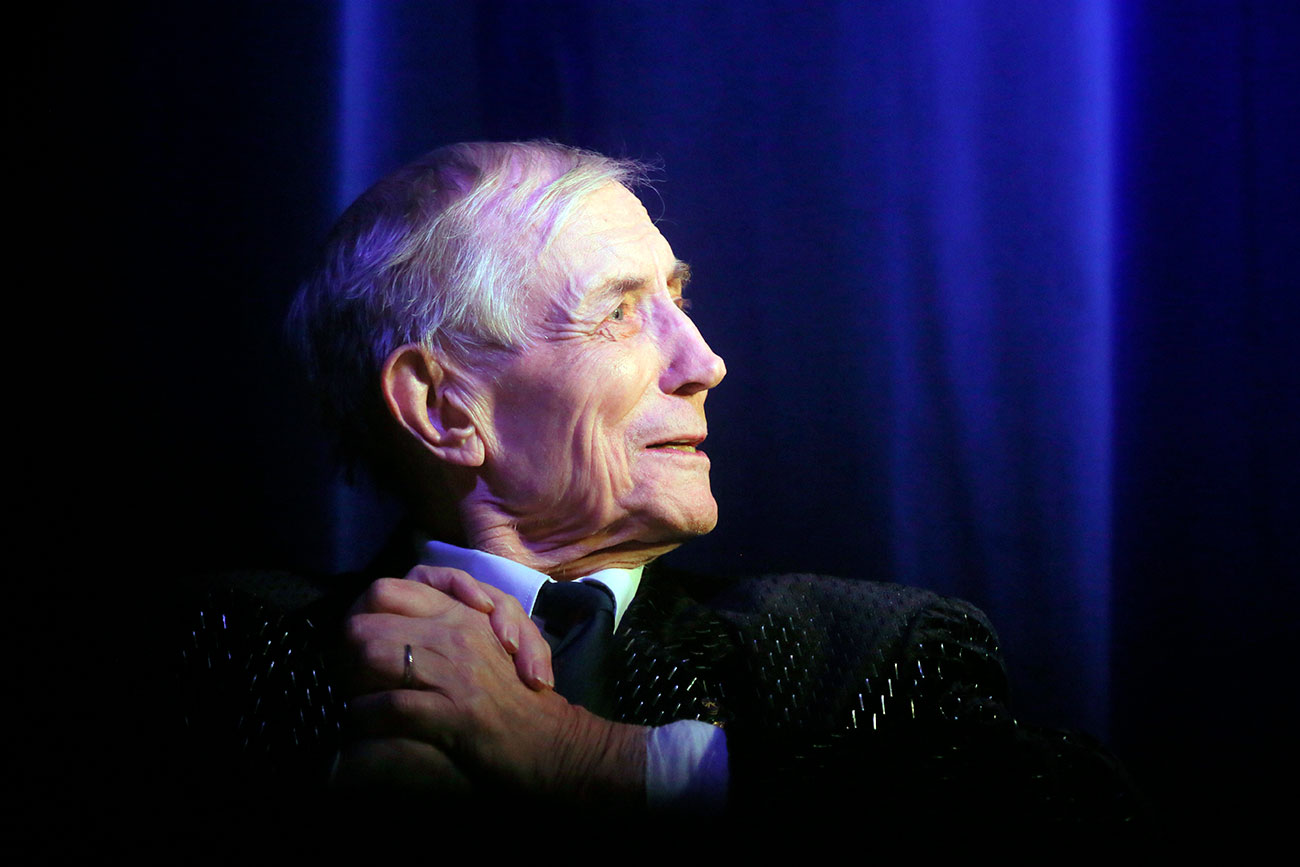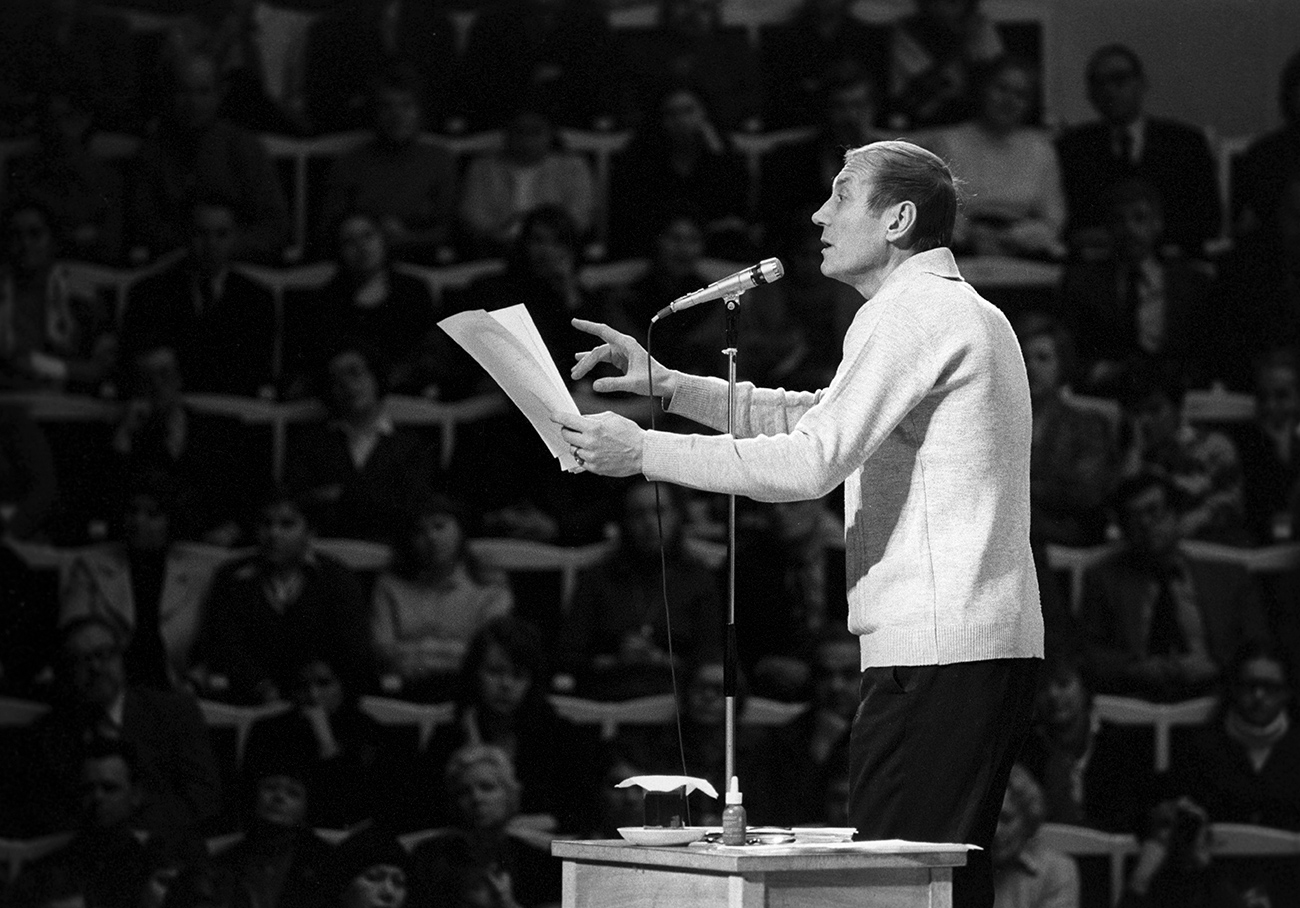
Yevgeny Yevtushenko.
Pavel Smertin/TASSYevtushenko is one of those rare poets whose lines have become part of the fabric of a living language, and have turned into popular sayings: “A poet in Russia is more than a poet;” "Do Russians want war;" "Over Babi Yar there are no memorials;" "This is what's happening to me: My old friend doesn't visit me." Native speakers of Russian utter these phrases without thinking where they come from, but they all have one author – Yevgeny Yevtushenko.
Despite a certain jealousy, which is inevitable in artistic circles, even the most vociferous detractors of Yevtushenko's poetics and personality admitted that he was truly passionate about Russian poetry. He knew by heart a huge number of poems (not only by his friends, but also by people who were not close to him either personally and artistically), and he had devoted his whole life to the promotion of Russian poetry and even to its propaganda. Yevtushenko's monumental anthology, Verses of the Century (1995), for the first time brought back to life poems by many emigrants who had been banned and therefore forgotten in the USSR. More recently, Yevtushenko completed an even more monumental five-volume collection called Ten Centuries of Russian Poetry (2013).
 Poet Yevtushenko performing. Source: Yury Pilipenko/Global Look Press
Poet Yevtushenko performing. Source: Yury Pilipenko/Global Look Press
The Nobel Prize in Literature is awarded not for a specific work, although sometimes that is implied (as was the case with Pasternak and Doctor Zhivago) but "on the basis of merit and achievement." Yevtushenko's merit is indisputable: Long before Bob Dylan he brought lovers of poetry back to the stadiums during live orations in front of huge crowds, showing that making and, most importantly, understanding poetry is open not only to highbrow residents of university campuses and regulars at small artistic cafes, but also to masses.
At the same time, Yevtushenko is not a loner, not a random fluctuation, but a representative of a vast and fruitful literary trend, like Akhmatova ("The Silver Age") or V.S. Naipaul ("postcolonial literature"). A Nobel Prize to Yevtushenko would have been a Nobel Prize to all Soviet poets of the 1960s generation: Voznesensky, Rozhdestvensky, Akhmadulina; just as a Nobel Prize to Akhmatova would have been also a Nobel Prize for Tsvetaeva, Mandelstam, Gumilev... In the 2010s, when Yevtushenko remained the last outstanding representative of his generation of poets, that became obvious. But all that time the Nobel Committee thought differently. And now that is final.
Mikhail Viesel is the editor in chief of the Year of Literature portal.
If using any of Russia Beyond's content, partly or in full, always provide an active hyperlink to the original material.
Subscribe
to our newsletter!
Get the week's best stories straight to your inbox